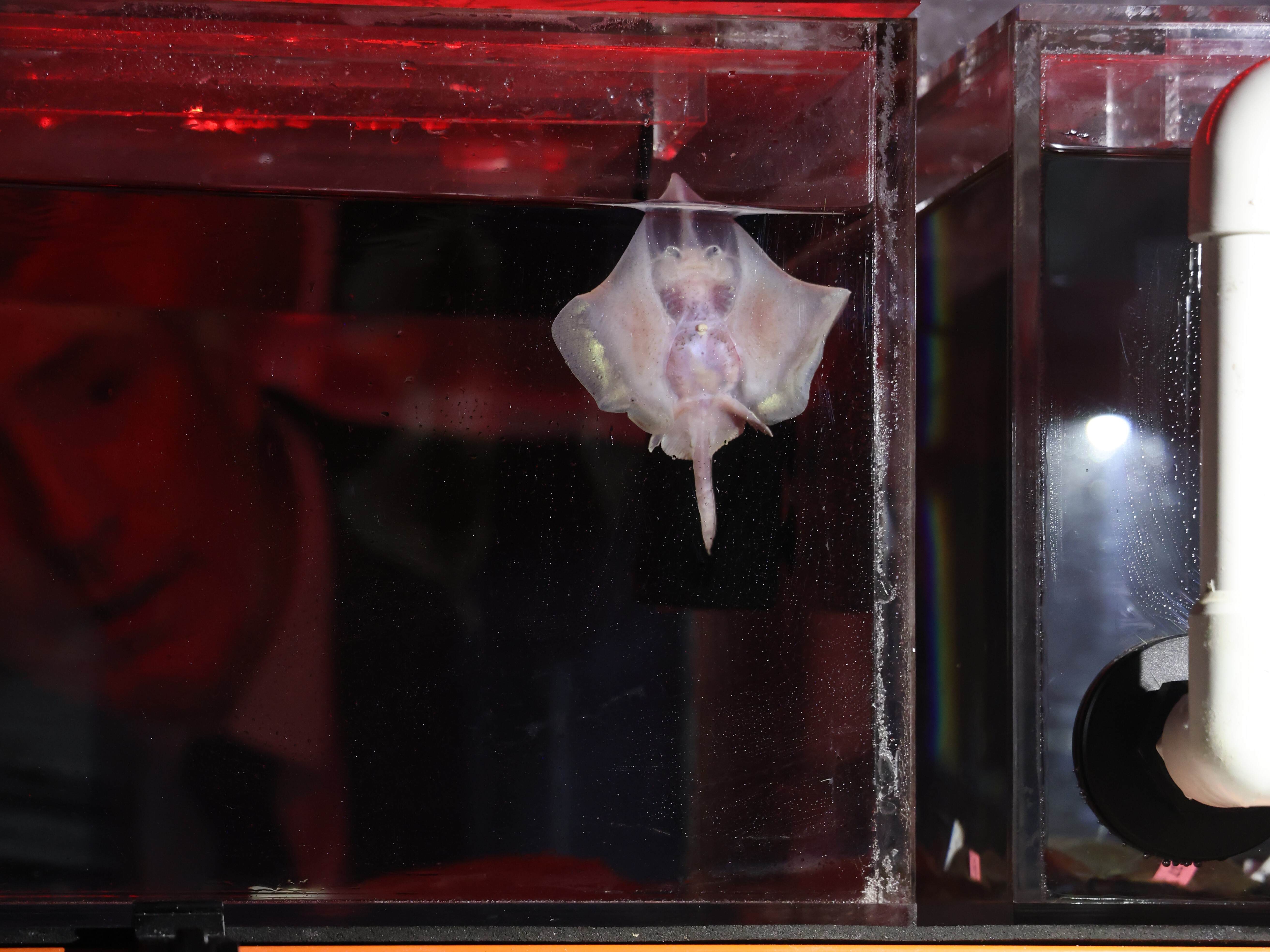For the first time ever, a baby Maugean skate has been hatched from an egg laid in captivity at the Institute for Marine and Antarctic Studies (IMAS) facilities in Taroona.
"We've been trialling captive holding and rearing methods for two years with other skate species, so successfully producing our first hatchling from a captive-laid egg for this very unique skate is really something to celebrate, and it's a significant step towards conserving the species," said IMAS researcher Professor Jayson Semmens, who leads the IMAS Maugean skate captive breeding program.
The program was established in response to significant declines in the Maugean skate population in Macquarie Harbour.
An adult female skate was brought into captivity in December last year and laid her first egg shortly after.
"The eggs take around seven months to develop, with the first healthy female skate hatchling arriving on July 10," Prof Semmens said.
"The adult female has been laying eggs since her arrival last December - two at a time, every four days on average - and has produced over 100 eggs to date.
"So we're preparing for more hatchlings to make their appearance any time now."
The IMAS team also brought 50 wild-laid eggs into captivity in December, with over half of those viable and producing healthy hatchlings, but captive egg laying is another way to rapidly increase the numbers of animals in captivity.
"Since December, the program has evolved quickly from simply knowing if we can safely hold skate and their eggs, to confirming that not only can this be done, but captive females can rapidly contribute to the number of eggs in captivity and the embryos can develop into viable hatchlings," said IMAS researcher Doctor David Moreno.
Greens Senator Peter Whish-Wilson said this successful hatching is heartening news for scientists.
"But captive-bred skate still need a healthy home to return to, and sadly their last remaining habitat is being destroyed by a polluting salmon farming industry," Senator Whish-Wilson said.
Minister for Parks and Environment Nick Duigan said in addition to taking a lead on developing a captive program, the Institute for Marine and Antarctic Studies (IMAS) is also undertaking monitoring and extensive research to help conserve this unique species with funding from the Australian Government and $4 million from the Tasmanian Government.
"This includes funding for important monitoring and research as well as substantial contributions for the captive breeding techniques," Minister Duigan said.
"The Tasmanian Government is investing in a range of actions to improve management of the Macquarie Habour ecosystem, while reducing threats to the Maugean skate."
Captive breeding is one of more than 35 actions detailed in the Tasmanian Government's Conservation Action Plan for the Maugean skate and overseen by the National Recovery Team.
"The next stage is to understand the genetic identity of the Maugean skates we have in captivity and examine how this compares with genetic diversity in the wild population," Professor Jayson Semmens said.
"This will help us determine which animals to retain as founders for a captive population and which animals could eventually be released.
"Genetic sequencing information is crucial for managing a captive population and to achieve our ultimate goal - ensuring the continued existence of the species."
IMAS Fisheries and Aquaculture Centre Head Professor Sean Tracey said renovations to the existing captive skate breeding space at Taroona are being accelerated.
"This will ensure the juveniles can continue to grow safely and enhance our animal husbandry methods for the species - a win for endangered marine species conservation, led by Tasmanian scientists," Prof Tracey said.
Taroona facility historic hatch


